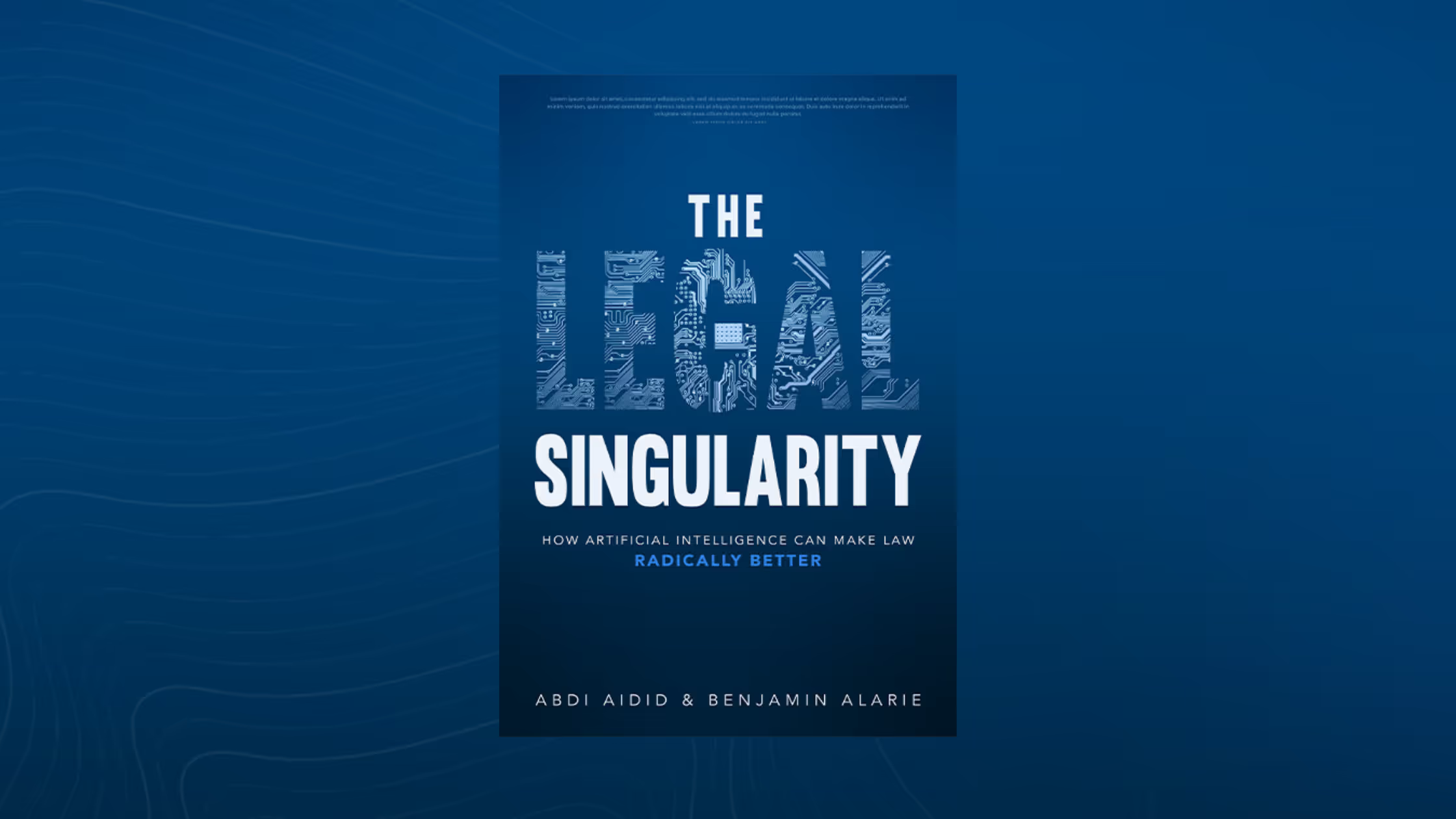
At Blue J, we're delighted to offer this blog series providing an exclusive sneak preview into the highly anticipated book, The Legal Singularity. The book explores how society can harness artificial intelligence (AI) to make the law "radically better" and achieve a vision of the law as fully comprehensive and predictable. One illustration of our commitment to advancing the legal industry is the development of Ask Blue J, our upcoming AI-powered tax chatbot. We're thrilled to be a part of this exciting future and look forward to continuing the conversation with you.
Exploration of Chapter 1: Introducing the Legal Singularity
In their new book, Blue J’s co-founder and CEO, Benjamin Alarie, and Blue J’s Legal Innovation Strategist, Abdi Aidid, explore how society can harness AI to make the law “radically better.”
The first chapter introduces the concept of the "legal singularity," a future vision of the law as fully comprehensive and predictable. As described by the authors, the legal singularity is a stable and complete legal order, capable of addressing and resolving practically all types of legal uncertainty in real time and on demand. The legal singularity is distinct from other ideas of singularity and embodies the future evolution of legal systems.
The book examines the impact of technology, especially AI, on legal systems and society, as these advancements drive us toward the legal singularity. This technology will upend existing legal practices, enabling us to construct a deeper and more responsive legal system. Legal prediction algorithms will allow for quick, accurate legal advice and decisions, giving everyone a clear understanding of their legal rights and obligations in real-time.
While advocating for technological advancements to create a more adaptable legal infrastructure, the authors also emphasize the need to exercise caution to prevent unintended consequences. The primary challenge when integrating AI into law is to ensure that our legal systems and institutions align with our societal values in novel situations and circumstances.
Although Canada's legal system is robust and effective by historical standards, the authors recognize ample room for improvement. They cite barriers such as court inaccessibility, complex laws, bewildering legal procedures, and potential unfairness in legal outcomes. Technology could offer solutions to these issues.
The opening chapter concludes with a statement of the final goal of the book:
[The Legal Singularity] is neither solely an academic work nor a blueprint for further technological growth. Instead, we offer a framework for future discussion and elaboration among all members of the law’s epistemic community: the scholars who embrace legal technology or question it; the lawyers who think it augments their practice or threatens it; and the judges, law students, and engaged citizens who are wondering how the future might look.
We at Blue J embrace the challenges inherent in using AI to bring clarity to the legal field. Our upcoming tax chatbot, Ask Blue J, will provide real-time answers to tax questions, furthering our mission of democratizing access to justice and promoting a transparent legal system. We understand the importance of careful development and responsible usage of these tools to ensure that they contribute to a more just and accessible legal system. As such, we eagerly anticipate further engagement with the legal community to promote the ethical and effective integration of AI.
Stay tuned for our next blog post, which will highlight the second chapter of The Legal Singularity that discusses the nature of legal information.
The Legal Singularity (published with University of Toronto Press) is set for release July 2023.

Stay up to date












